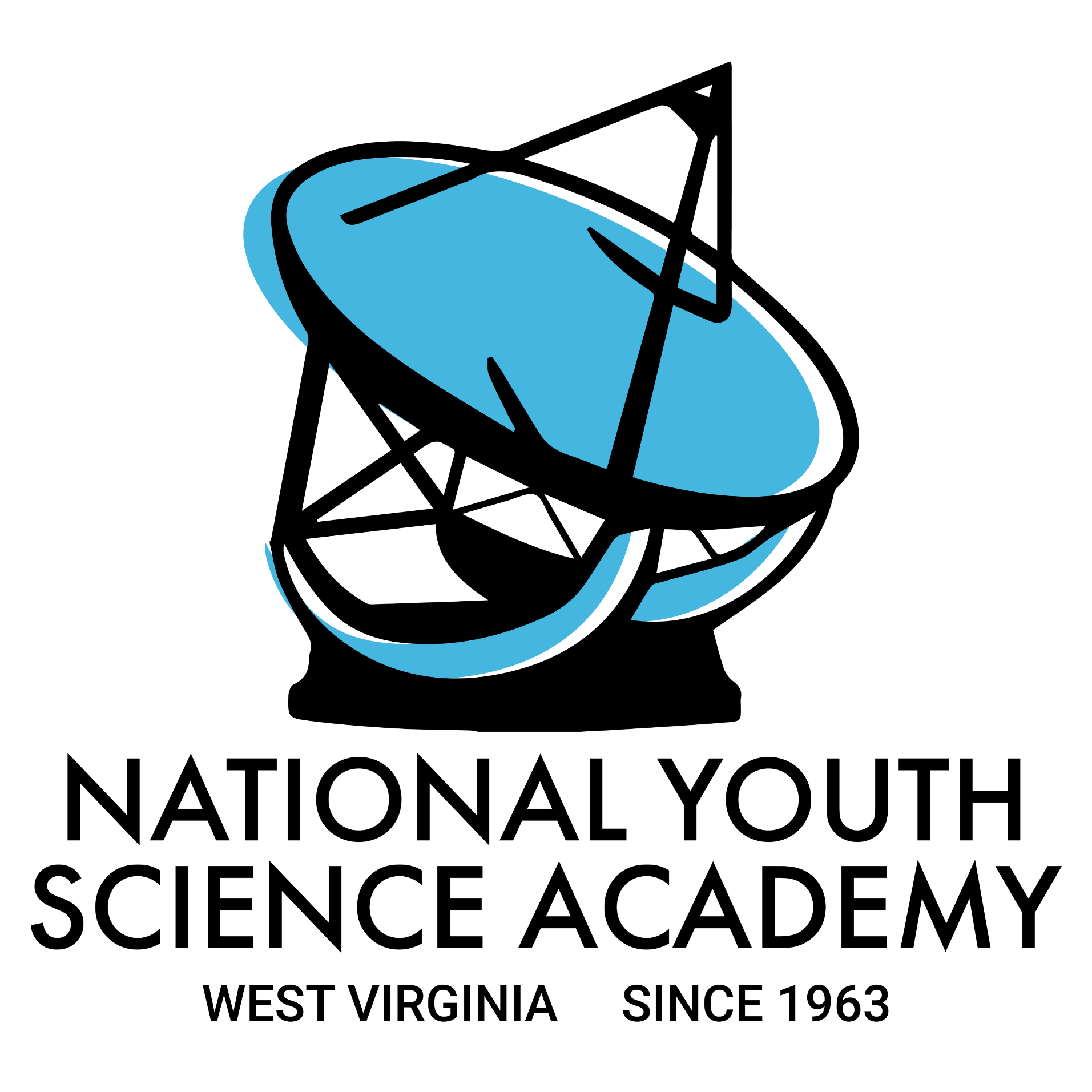Return to the main 2020 Virtual NYSCamp Page
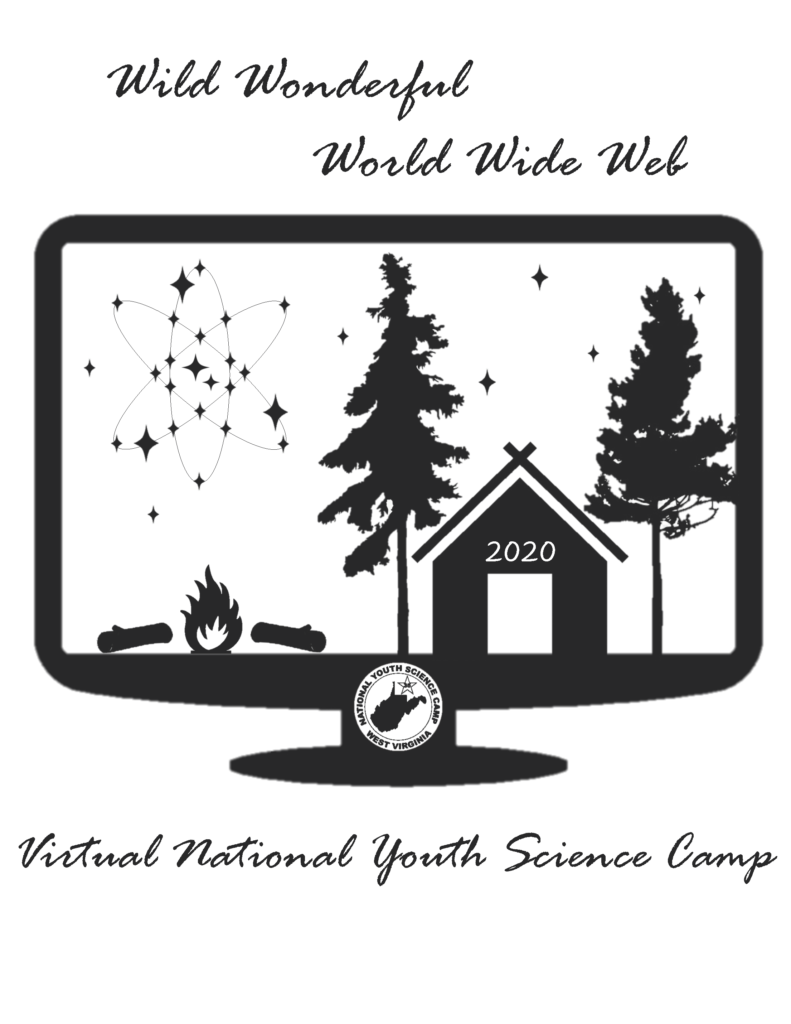
Return to the main 2020 Virtual NYSCamp Page
Lecture Bios and Abstracts
The centerpiece and highlight of this year’s Virtual NYSCamp is the nightly lecture series. Each weeknight during the three weeks of camp delegates can tune in at 8 PM for a world class lecture by an expert in a STEM field. We hope you will join us live for all of the scheduled lectures. Recognizing the challenges of tuning in from home during a pandemic, we will also be recording the lectures for later viewing. Be sure to turn in on Monday June 1st for an orientation to the virtual camp and some surprise speakers who will welcome you to the camp.
Brian Kinghorn, PhD
NYSCamp Director
Assistant Professor: Curriculum, Instruction, and Foundations
Marshall University
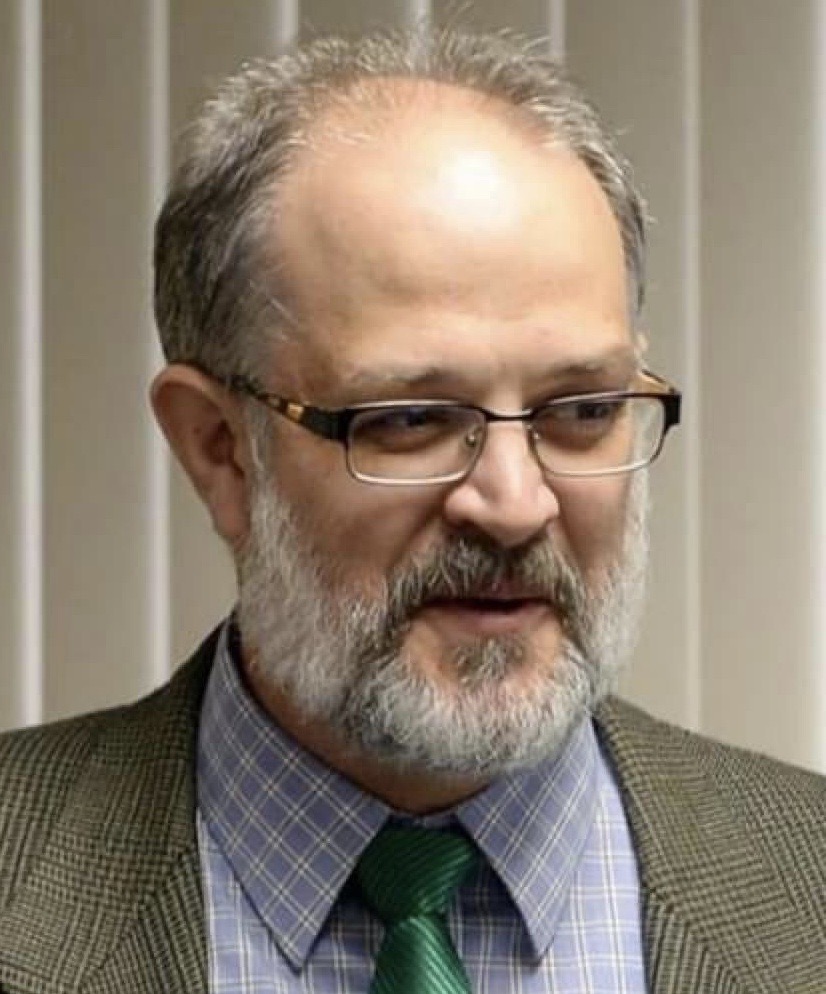
Dr. Kinghorn is an Assistant Professor of Curriculum, Instruction, and Foundations at Marshall University and the Director of the National Youth Science Camp. He is also the lead organizer and licensee for TEDxMarshallU. He earned his PhD in Educational Psychology and Educational Technology from Michigan State University in 2013.
Dr. Kinghorn been conducting inquiry-based extra-curricular science programs and science assemblies and conducting both formal and informal teacher professional development since 2002. Throughout his career he has presented week-long science camps and other programs through the U.S. and abroad. While at Marshall he has worked with the June Harless Center to conduct outdoor-education professional development for elementary teachers throughout West Virginia; certified as a facilitator for both Project WET and Project Learning Tree and serves on the state steering committee for the latter; and served on a number of working committees with West Virginia State Superintendent’s office focused on creating and validating the state elementary science standards and assessments. Dr. Kinghorn’s areas of research include ways teachers learn science from their own teaching practice, methods for effective teaching, and the psychology of social media. His family is very important to him. Dr. Kinghorn and his wife Leah are happily married with seven children. Of all his accomplishments he’s most proud to be a husband and father.
Twitter: @DrBrianKinghorn
email: director@nyscamp.org
www.briankinghorn.com
2020 Virtual NYSCamp Welcome & Orientation
Monday June 1 at 8 PM EDT
In this opening lecture, Dr. Kinghorn will facilitate delegate introductions and introduce the layout, schedule, and protocols of the 2020 Virtual NYSCamp. Delegates will be warmly welcomed to camp by Senator Joe Manchin (D-WV) and Senator Shelly Moore Capito (R-WV) as well as Dr. Andy Blackwood, Executive Director of the National Youth Science Foundation, and Jill Cochran, a member of the foundation’s board of directors.
Brian Kinghorn orientation https://youtu.be/zqyhHAK3Uq0
Jill Cochran welcome https://youtu.be/QgNAW6QdA5I
Andy Blackwood, EdD welcome https://youtu.be/4JdA6790-Oo
Senator Capito welcome https://youtu.be/2YhYC2xmCyI
Senator Manchin welcome https://youtu.be/vsAS7dQyCPQ
Julie Robinson, Ph.D. (ID 1985)
NASA Headquarters, Washington, DC
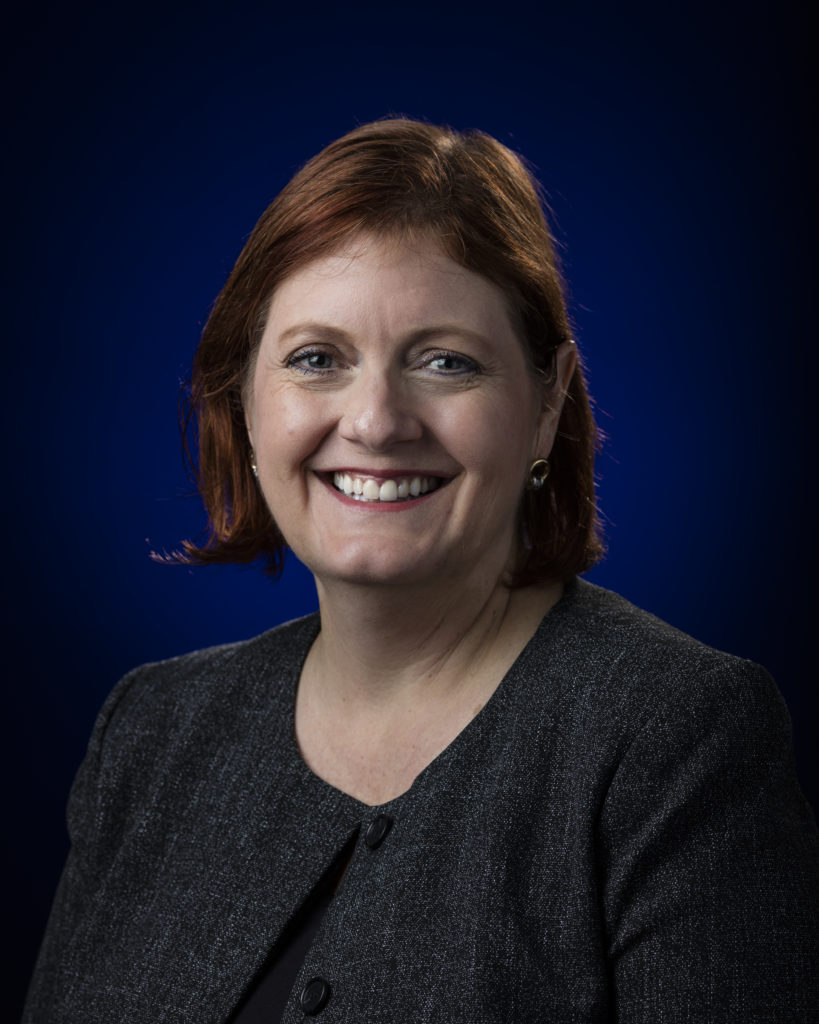
Dr. Julie A. Robinson leads Science and Utilization Strategy for Human Exploration and Operations at National Aeronautics and Space Administration (NASA) Headquarters in Washington, DC. In this role, she provides science advice at the highest levels of the agency, promoting exploration research and demonstration strategies onboard all human spaceflight missions, and developing and advocating policy to enhance research in human spaceflight. She spent the last year coordinating a multi-platform research strategy that integrates ISS and Artemis in preparation for human missions to Mars.
She joined NASA as a civil servant in 2004, became Deputy ISS Program Scientist in 2006, and ISS Chief Scientist in 2007. She received the NASA Outstanding Leadership Medal in 2011. From 2007-2018, Robinson served as Chief Scientist of the ISS Program at NASA Johnson Space Center, representing all ISS research disciplines at the highest level in the program and providing information and recommendations to senior leaders inside the agency and stakeholders outside the agency. From 2018-2019 Dr. Robinson worked as Associate Director of NASA’s Human Research Program (HRP), which is responsible for understanding crew health in the extreme environments of space and mitigating those risks to insure successful human exploration beyond Earth orbit.
She earned a B.S. in Chemistry and a B.S. in Biology from Utah State University in 1989. She earned a Ph.D. in Ecology, Evolution and Conservation Biology from the University of Nevada Reno in 1996. Her personal interests include work on the boards of several non-profit organizations, mentorship to engage girls in math and science, and as an amateur singer of jazz and classical music
Preparing for Human Missions to Mars: Strategy for using ISS and Artemis as Analogs
Tuesday June 2, 2020 8PM EDT
The hazards of spaceflight to the human system are present in in varying degrees on different spaceflight platforms: altered gravity, isolation and confinement, distance from Earth, radiation, and hostile closed environments. Considering the fidelity of hazards experienced on different platforms compared to what will be experienced someday in a Mars mission can shape the testing plans for human research and technology demonstration related to crew health and performance in space. If we do it right, we can use the missions to improve readiness and get to Mars more quickly and more safely…we could even influence the architectures and missions being planned for the moon. I will tell the story of how we have developed this strategic approach, summarize the rapidly changing agency exploration plans and the greatest risks to human health on future Mars missions. ISS, Artemis and Mars are all connected together as a single human spaceflight challenge.
Watch the video here: https://youtu.be/5gR_u70SZoE
Ernie Ting (NJ 1972)
Founder & CEO, CivImpact Labs
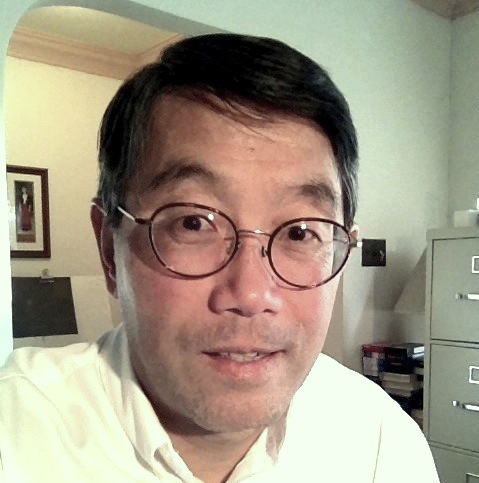
After attending NYSCamp in 1972, Ernie Ting went on to study physics at Yale before
finally switching to economics for his degree and later receiving an MBA from Stanford. He is a social scientist and entrepreneurial innovator with a particular expertise in behavioral economics, political psychology, and public policy.
Mr. Ting is currently the Founder and CEO of CivImpact Labs, an applied technology startup based in California that is working on ways to solve some of the most difficult information an communication problems facing our society.
For many years before that, Ernie was a subject matter expert, government agency administrator, or senior policy advisor to public officials across a wide range of subject areas including the deployment of broadband technology, consumer protection, energy resource and environmental protection policy, and local health and social safety net programs. He also directed one of the largest online sources of election information, was a management consultant for businesses, governments, and nonprofits, and served on the board of directors of various civic organizations.
email: ernie@civimpact.com
Twitter: @ernieting @CivImpact
How to Use Science and Technology to Improve the World
Wednesday June 3, 2020 8 PM EDT
As scientists, we’re great at applying sophisticated knowledge, systematic analysis and reasoning to solve problems! And as part of that, we often use or even develop really impressive and innovative technologies. But when it comes to problems that involve human behavior, those same approaches can lead us to trouble. We’ll examine a series of examples from my career and from recent events — and look to learn some valuable lessons.
Watch the video here: https://youtu.be/nT2OGfGgqdc
David Trowbridge, Ph.D.
Clio Founder & Associate Professor of History
Marshall University

Dr. David Trowbridge (Ph.D. Kansas, 2008) is an associate professor of history at Marshall University and the founder of Clio, a website and mobile application that connects people to nearby history, art, culture, works of engineering, science, and nature. Clio is non-profit and free for everyone thanks to universities, historical societies, libraries, and museums that have used Clio to build over 700 walking tours and 30,000 individual entries for historic buildings, monuments, and other landmarks. Clio also offers virtual tours of sites and museums.
Twitter: @thecliodotcom
@dtrowbridge7
Using Technology to Connect People to the Science, History, Art, and Culture that Surround Us
Thursday June 4, 2020 8PM EDT
Clio www.theclio.com makes it possible to explore over 30,000 historical and cultural sites or enjoy over 700 walking tours from any location or by using GPS. With the new virtual tours, you can move through a museum, cultural site, historic site, state park, or even a nature trail complete with audio narration, text, 360-degree images, and links. The tours work from any location, and they can also be downloaded to a device and offer navigation without wifi or a cell signal.Dr. Trowbridge will discuss how participants can use Clio to explore their world and how they might create virtual tours of science museums, nature trails, or historical and cultural sites.
This video is an introduction to Clio and its possibilities. https://www.nysacademy.org/youtube.com/watch?v=KHqb9QkBOMs&feature=youtu.be
Clio www.theclio.com guides people to over 30,000 landmarks and offers walking tours for cities, virtual tours of museums, and even interpretive nature trails. The walking tours for communities and driving tours for cities and rural areas interpret the history, culture, art, and even the science and engineering behind physical landmarks. Entries can include text, audio, images, and links to more information.
Different types of tours:
- Here is an example of a nature trail at Cranberry Glades in West Virginia with audio from the park naturalist and a science teacher: https://theclio.com/entry/84925
- Here is an example of a virtual tour of a museum complex at Heritage Farm in West Virginia that offers audio from staff: https://theclio.com/entry/25771
- Here is a tour of an art museum, the Huntington Museum of Art, with narration from the museum director: https://theclio.com/entry/28242
1, 2, and 3 are self-contained tours. That is, they are individual Clio entries for a site or landmark that has a tour of that place inside of them.
- Here is an example of a traditional walking tour of downtown Huntington, WV that connects multiple sites including museums on a walk through town https://theclio.com/tour/11
Video of lecture: https://youtu.be/w27bmuglYt8
Ryan J. Haupt
Ph.D. Candidate, University of Wyoming
Science Fellow, Geological Society of America

Ryan Haupt is a vertebrate paleontologist finishing his Ph.D. at the University of Wyoming while also serving as the Science Policy Fellow for the Geological Society of America. He has degrees in geology and biology from the University of California, Santa Cruz, and completed his Masters at Vanderbilt University. His work focuses on developing techniques to better understand the diet of modern and fossil sloths, which are a very strange group by mammalian standards. He lives in Washington, D.C. with his wife and dog, and enjoys getting out of the city to go hiking, biking, and kayaking.
Contact Ryan at: https://ryanhaupt.com/contact-me
Twitter: @haupt
LinkedIn: https://www.nysacademy.org/linkedin.com/in/ryanjhaupt/
The Wild and Wonderful Sloths of WV (and Beyond): Using paleontological techniques on modern sloths to better understand their extinct relatives
Friday June 5, 2020 8PM EDT
Mr. Haupt will discuss the historical fossil discoveries of Appalachia and the research he is currently working on. In particular, he will focus on his projects using proxy methods such as stable isotope analysis to assess diet in living and extinct sloths, and how that technique can help answer some of the most persistent questions about this charismatic group of lazy beasts.
Optional reading about Ryan’s work to prepare you for the lecture:
https://thebridge.agu.org/2018/10/17/a-passion-for-paleontology/
https://www.nysacademy.org/livescience.com/56703-mummified-poop-reveals-extinct-sloth-diet.html
https://experiment.com/sloths (crowd-funding campaign Ryan ran to fund some of his work which has a video of him explaining the goals of the project that this lecture will report some of the results of).
Video of lecture: https://youtu.be/ngC3qO0HF2Y
Kara Christensen, Ph.D. (SC 2007) Postdoctoral Researcher

Dr. Christensen received her doctorate in clinical psychology from the Ohio State University in 2019 and completed her clinical internship training at the Medical University of South Carolina. Currently, she is a postdoctoral researcher in the Department of Psychology at the University of Kansas. Dr. Christensen’s research focuses on understanding social support and emotions in people with eating disorders. Additionally, she is trained in providing evidence-based treatments for people with eating disorders, anxiety disorders and depression, post-traumatic stress disorder, and sleep disorders.
email: christensen@ku.edu
Twitter: @KChristensenPhD
https://care.ku.edu
Stress Management 101
Monday June 8, 2020 8PM EDT
Now, more than ever, people are feeling increased strain on their abilities to cope in the face of stress. In this lecture, you will learn more about how stress impacts the body and overall functioning. We will discuss the dynamic relationships between thoughts, emotions, behaviors, and physiological responses. You will learn more about skills derived from cognitive-behavioral therapy to help reduce stress in the moment and long-term.Note: This lecture is intended for educational purposes only. If you are experiencing problems with your mental health, you should consult with a trained mental health professional.
Video of lecture: https://youtu.be/RHo2tWmD3nI
Lecture slides: http://box2103.temp.domains/~karachr1/wp-content/uploads/2020/06/Stress-Management-101.pptx
Nathan Okerlund, Ph.D.,
Research Scientist at the University of Utah/Howard Hughes Medical Institute
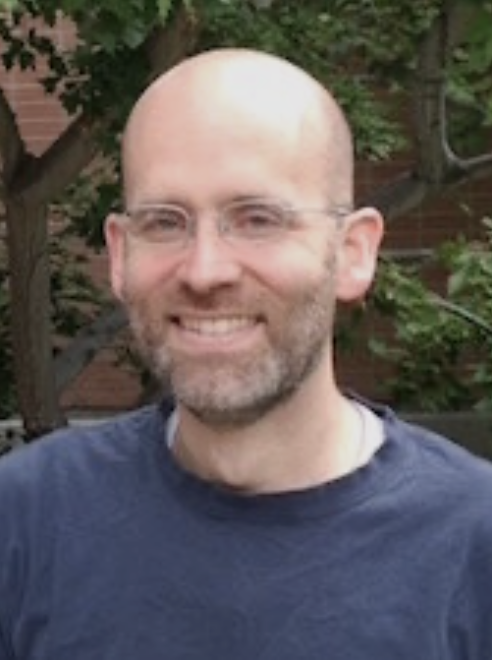
Dr. Okerlund is a native of Utah and attended the University of Utah, where he majored in chemistry and did undergraduate research on electrochemistry and bioinorganic synthesis. He decided to study neuroscience in graduate school because “brains are awesome,” and earned his Ph.D. from UC-San Francisco, where he described how a newly-discovered protein contributes to synapse formation between neurons. He completed a postdoc at Stanford University studying neurodegeneration, related to diseases like Alzheimer’s. He’s continuing that research after returning “home” to the University of Utah where he now works with Dr. Erik Jorgensen.
email: n.d.okerlund@utah.edu
Genetics, Model Organisms, and You:
Or, What You Can Learn from a Worm!
Tuesday June 9, 2020 8PM EDT
Genetics and Neuroscience in the Nematode C. Elegans. The study of genetics allows us to understand how we turn the information contained in DNA into living, functioning organisms, and how mistakes in that information can lead to dysfunction and disease. We can combine the advances in genetics with the use of model organisms to study human disease—but what is a model organism, and why do we use them? My own model organism of choice is the nematode C. elegans, which has a tremendous power as a genetic model and allows us to see how neurons work in a living organism. As a researcher interested in neurodegeneration, I am using these tools to study processes related to diseases like Alzheimer’s and Parkinson’s disease to try to create new ways of understanding and treating these diseases.
Articles with additional information:
https://pubmed.ncbi.nlm.nih.gov/30116051/?from_term=nixon+alzheimer%27s&from_filter=pubt.review&from_pos=4
https://www.nysacademy.org/nature.com/articles/nm.3232
https://www.nysacademy.org/sciencedirect.com/science/article/abs/pii/S0959438817301241?via%3Dihub
Video of lecture: https://youtu.be/Hba79lxJIls
Mrs. Kylie Conover M.A. (NV 2009)
Museum Educator at the Terry Lee Wells Nevada Discovery Museum
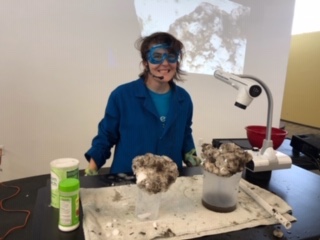
Kylie Conover is a Museum Educator at the Terry Lee Wells Nevada Discovery Museum where she gets to teach visitors about cool science stuff. When she isn’t at the museum you can find her at home working on various woodworking projects or outside enjoying the sights of Nevada with her husband Clay and dog Aspen. Kylie was a 2009 Nevada delegate and was on staph for many years.
email: kylieconover2018@gmail.com
twitter: @history_kylie
linkedIn-https://www.nysacademy.org/linkedin.com/in/kylie-conover-29266452/
Adventures at the Museum: A Journey to Becoming a Science Communicator
Wednesday June 10, 2020 8PM EDT
The United States is suffering from a lack of scientific literacy and deep skepticism of experts. How do scientists reach out and be understood without alienating their audience? This lecture goes into how I became a science communicator through a crazy round about path.
Video of lecture: https://youtu.be/IYwWwX0ANtY
Michael James Kinghorn, Ph.D.
Research Scientist, Gilead Sciences
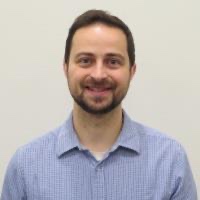
Dr. Kinghorn received his B.S. in Biochemistry from Brigham Young University-Hawaii in 2013. His undergraduate research focused on the analysis of traditional Tahitian medicinal plants. He received his Ph.D. in Organic Chemistry from Brigham Young University in 2019, where he developed novel bifunctional peptide catalysts. He began work as a Research Scientist at Gilead Sciences in November, 2019. Here his research focuses on supporting the development of Remdesivir and other small molecules pharmaceuticals.
LinkedIn: https://www.nysacademy.org/linkedin.com/in/michael-kinghorn-97122b102
Cutting Edge Antiviral Treatments for HIV, Hepatitis C and Coronaviruses: An Overview of Small Molecule Research & Development
Thursday June 11, 2020 8PM EDT
Development of effective treatments for persistent viruses requires an innovative approach that often focus on the inhibition of viral replication. This has been made possible in recent years due to an in depth understanding of the molecular machinery which regulates viral systems. Small molecule analogs are known to inhibit this machinery, however designing these molecules is only a small part of the process to develop an effective treatment. After a drug candidate is selected for a desired activity, it then undergoes rigorous clinical and laboratory testing to determine its safety and efficacy. Only after meeting stringent regulatory requirements will a treatment be allowed to be administered to patients. This process, though long and tedious, ensures that ground breaking treatments can be delivered safely to those with unmet medical needs. Gilead Science’s expertise in nucleotide and nucleoside analogs has led to a cure for Hepatitis C and lifesaving treatments for HIV and SARS-CoV-2(coronavirus).
Relevant videos:
Dave Troy
CEO, 410 Labs
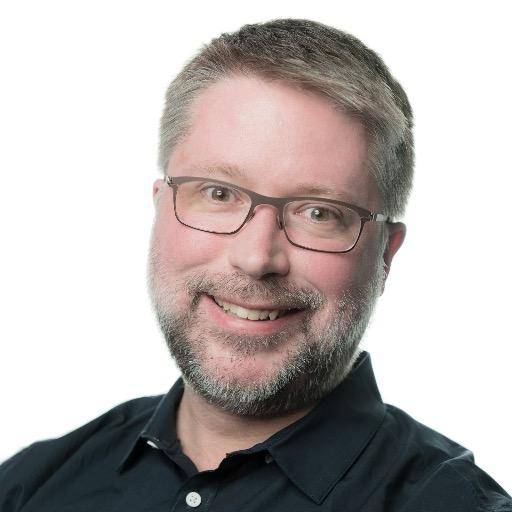
Dave Troy is a tech entrepreneur and disinformation researcher. He began studying social media data in 2007, and has been acknowledged as the first developer to use the Twitter API. His data visualization work has been featured in the 2008 exhibition “Design and the Elastic Mind” at the Museum of Modern Art in New York, and at TED. He is also curator of TEDxMidAtlantic in Washington, D.C. since 2009, and is based in Baltimore, Maryland. Dave serves as CEO and product architect at 410 Labs, maker of the popular e-mail management tools Mailstrom and Chuck. In the area of disinformation research, his work focuses on the intersection of sociology, network science, and political science.
Twitter: @davetroy
email: dave@410labs.com
Division, Disinformation, Pandemic, and Politics:
Making Sense of 2020
Friday June 12, 2020 8PM EDT
Tribalism and Disinformation in a Time of Pandemic. Western society is more divided than ever. Social media platforms have reinforced existing divisions, disinformation, and COVID-19 have made this division even worse. Dave will discuss how divisions in society and disinformation drive dynamics that are similar to those observed in cults, and he’ll talk about a few ways we might try to reverse some of the damage that’s being done.
Video of lecture: https://youtu.be/6zEknLba2Ag
Peter Mulvey
Musician
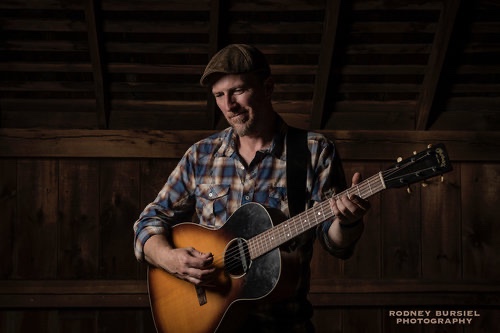
Peter Mulvey is a regular performer at the NYSCamp, where he usually does a concert in a cave. He has been a songwriter, road-dog, raconteur and almost-poet since before he can remember. Raised working-class Catholic on the Northwest side of Milwaukee, he took a semester in Ireland, and immediately began cutting classes to busk on Grafton Street in Dublin and hitchhike through the country, finding whatever gigs he could. Back stateside, he spent a couple years gigging in the Midwest before lighting out for Boston, where he returned to busking (this time in the subway) and coffeehouses. Small shows led to larger shows, which eventually led to regional and then national and international touring. The wheels have not stopped since.
Eighteen records, one illustrated book, thousands of live performances, a TEDx talk, a decades-long association with the National Youth Science Camp, opening for luminaries such as Ani DiFranco, Emmylou Harris, and Chuck Prophet, appearances on NPR, an annual autumn tour by bicycle, emceeing festivals, hosting his own boutique festival (the Lamplighter Sessions, in Boston and Wisconsin)… Mulvey never stops. He has built his life’s work on collaboration and on an instinct for the eclectic and the vital. He folds everything he encounters into his work: poetry, social justice, scientific literacy, and a deeply abiding humanism are all on plain display in his art.
www.petermulvey.com
Peter Mulvey Virtual Concert
Saturday June 13 at 8:00 PM EDT
I’ll be playing an hour’s worth of songs, mostly songs that I’ve written, and the whole time I’ll try to return to something I’ve noticed: art and science have in common that they begin from a place of wonder, a place of curiosity. As a writer, and as a performer, things are at their best when you don’t actually know what’s next. This sense of mystery is fractal, in that it holds up at the fine-grained level. In the truly shining moments of making art, you’re genuinely curious about what note is next, about what word is next. I read a one-sentence summation of the Enlightenment: “Humankind admits its ignorance and as a result becomes exponentially more powerful.” What I hope to bring to the concert Saturday is what I hope to bring to every concert: an admission of my ignorance about songs, songwriting, singing, and playing the guitar.
You can find the livestream at these links:
https://www.nysacademy.org/youtube.com/petermulvey43
https://www.nysacademy.org/facebook.com/PeterMulveyMusic/
https://www.nysacademy.org/instagram.com/petermulvey43/
If you wish to donate to this concert, half the proceeds will go to the NYSC.
You can donate through these links:
https://www.nysacademy.org/paypal.me/petermulvey43
https://venmo.com/Peter-Mulvey-2
Video of concert: https://youtu.be/V8OR1MyPsOg
Emily Huang, MD (NJ 2001)
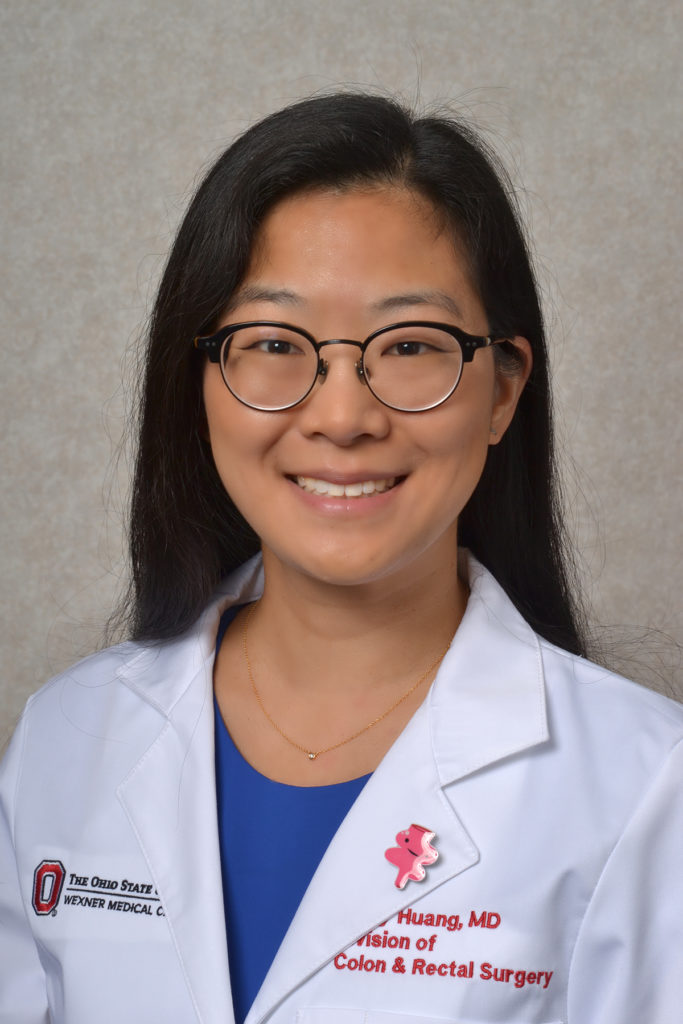
Emily Huang, MD, MEd, is Assistant Professor of Surgery in the Division of Colon and Rectal Surgery and Associate Director of Education for Robotic Surgery at THE Ohio State University. As a colorectal surgeon, she especially enjoys helping patients with inflammatory bowel disease and rectal cancer navigate complex decisions. As an academic surgeon, she uses evidence-based methods to teach surgeons to teach better. Dr. Huang first attended NYSC as a delegate from NJ in 2001, and her lifelong goal was finally achieved in 2012, when she first returned as a presenter (she can die now). Her alma mater colors have been: orange and black, scarlet, navy and celeste, blue and gold, maroon and white, and finally, SCARLET AND GREY! She’s been east coast, west coast, and middle coast; high, low, yes, and oh hell no. Her favorite emoji is, quite obviously, the poop emoji. She enjoys teaching laparoscopic colectomies, kidney transplants, sunsets, and long walks on the beach.
Education background: AB in Computer Science @ Princeton 2005, MD @ Rutgers Robert Wood Johnson Medical School 2009, MEd @ UC Berkeley 2014, General Surgery @ UCSF 2016, Colorectal Surgery @ U Chicago 2018.
email: emily.huang@osumc.eduTwitter: @emilyhuangmd
The Rectum’s Boss!
Monday June 15 at 8:00 PM EDT
Did you ever think about how cool it is that your anus can tell the difference between solid, liquid, and gas states of matter? (Probably not.) Without that ability, you wouldn’t be able to control your bowels. Some of the fascinating properties of our viscera lead to complex and life-altering decisions for patients with diseases of the colon and rectum, including inflammatory bowel disease and cancer. Reflecting on the myriad factors that affect these decisions, from quantity of life—three months? Twenty years?—to quality of life and personal priorities, may even change how you think about yourself as a human and lifelong learner.
Video of lecture: https://youtu.be/G_HAb_KI_nE
Frederick “Rick” Walker, MD (OH 1964)
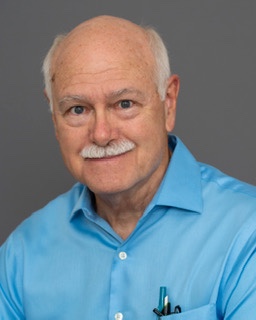
Dr. Walker was an Ohio Delegate to the 1964 (second) NYSC. He was on the Staph from 1965-1969. He earned a Bachelor of Science degree in Chemistry and a Medical Doctor degree. Dr. Walker became a surgeon in the Johns Hopkins Hospital Halsted Residency system. He became the Director of the Breast Cancer Surgery Center of Maryland and was a pioneer in many diagnostic and therapeutic techniques in breast cancer care. He retired from the practice of surgery after 40 years and taught Human Anatomy & Human Physiology courses at Marshall University for 7 years. Dr. Walker has been driving electric since 2017 and currently serves as the Secretary of the West Virginia Electric Auto Association. His wife, Joan, was one of the first Camp Kids.
email: surgeonFWW@aol.com
walkerf@marshall.edu
Electric Vehicles – Altering the Future of Transportation
Tuesday June 16 at 8:00 PM EDT
The rEVolution is proceeding exponentially! Rick will explain the three types of electric vehicles (EVs), and how hybrid vehicles (HVs) differ from battery electric vehicles (BEVs). He will explain why everyone will be driving electric (partially or totally) very soon. He will describe how EVs are charged, and the infrastructure needed to enable worry-free long-distance travel. Lastly, following questions, Rick will lead a discussion of the EV challenges remaining for the 2020 delegates to conquer in their careers.
If you have the time, watch this video “Earth Day 2020 (Rick Walker)” before the lecture:
https://www.nysacademy.org/youtube.com/watch?v=m3Tn7ABY3Wg
Video of lecture: https://youtu.be/GmlwhdWpyhc
Jessica Frey, MD (PA 2008)
Chief Neurology Resident, West Virginia University
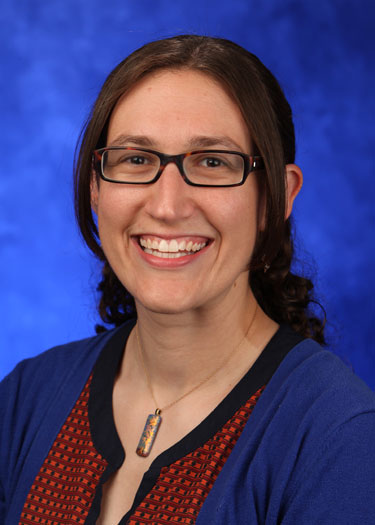
Jessica Frey is currently the chief neurology resident at West Virginia University. She is originally from Pittsburgh, PA. She attended Penn State for medical school and will graduate from residency this month. She will be pursuing a movement disorder fellowship at UF in Gainesville, Florida in July. She was a PA’08 delegate to NYSC and returned for staph in 2013 for public relations. Her main areas of research include transcranial magnetic stimulation for post-stroke depression. She is also involved in global health research and recently completed a year-long neurology educational study in rural Guatemala. She is an avid traveler, and her most recent expeditions have included India, Morocco, and Egypt (prior to COVID of course). Her hobbies include tae kwon do, running, and playing gigs with her band.
Email: jess.el.frey@gmail.com
Neuromodulation: Clinical and Experimental Applications
Wednesday June 17, 2020 8 PM EDT
The world of neuromodulation is an exciting and developing field that is revolutionizing the way we think about medicine and neurologic recovery. My lecture will start with the basics of neuroplasticity, including a historical overview and surrounding controversy of neurogenesis. Then we will go through the current neuromodulatory technologies that are using ideas of neuroplasticity to enhance patient outcomes with accompanying videos of real patients. This will include:
· Noninvasive Brain Stimulation (NIBS)
a. Transcranial Magnetic Stimulation (TMS)
b. Transcranial Direct Current Stimulation
· Invasive Neuromodulation
a. Spinal Cord Stimulators
i. Allowing patients with spinal cord injury to walk again
ii. Helping Parkinsons patients walk better
iii. Helping patients with multiple sclerosis
b. Deep Brain Stimulation
i. Parkinsons and Essential Tremor
ii. Traumatic Brain Injury
iii. Post-stroke hemiparesisc.
c. Robotics/Neuroprosthetics/Brain Computer Interface
Video of lecture: https://youtu.be/k-S4dE2rlHQ
American Association for the Advancement of Science (AAAS) Panel Discussion
Thursday June 18 at 8:00 PM EDT
Josh Shiode, PhD (NV 2003)
Federal Affairs Director, External Affairs, Pacific Northwest National Laboratory

Josh Shiode is currently Federal Affairs Director for the Pacific Northwest National Laboratory (PNNL), representing PNNL and its priorities to key federal stakeholders and bringing PNNL resources to bear on federal- and national-level issues. Prior to joining PNNL, Josh served as Director of Government Affairs for the Semiconductor Industry Association and Senior Government Relations Officer at the American Association for the Advancement of Science (AAAS). During his time with AAAS, Josh led the Association’s work on the Golden Goose Award, which recognizes scientists whose silly, odd, or obscure-sounding federally funded basic research has led to significant impacts on society. Josh’s entrée into science and technology policy came as the 5th John N. Bahcall Public Policy Fellow of the American Astronomical Society. Josh holds a Ph.D. in astrophysics from UC Berkeley and a B.A. in physics and astronomy from Boston University.
Twitter: @JoshShiode
https://www.nysacademy.org/pnnl.gov/
Liz Neeley
Executive Director
Story Collider
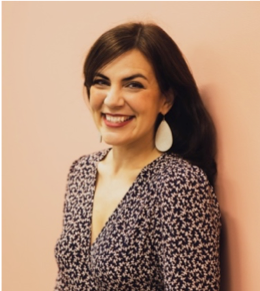
Liz Neeley is the Executive Director of The Story Collider, which is dedicated to producing true, personal stories about science. She comes to the field of storytelling after a decade of work in ocean conservation and science communication. From 2008 to 2015, she worked as the Assistant Director of Science Outreach for COMPASS, and was affiliate staff at The University of Washington. Before that, she worked on locally-managed marine conservation in Fiji and Papua New Guinea, and on international trade policies for deep-sea corals for SeaWeb. She co-organized the 2019 National Academies of Science’s Sackler Colloquium on science communication and misinformation, and is a member of Aspen Institute Science and Society Program advisory council and the AAAS Committee on Science and Technology Engagement with the Public (CoSTEP). Liz currently holds a Lecturer appointment at Yale University through the National Neuroscience Curriculum Initiative.
Twitter: @LizNeeley
https://www.nysacademy.org/storycollider.org/
Ana M. Ferreras, PhD
Senior Program Officer
National Academies of Sciences, Engineering, and Medicine
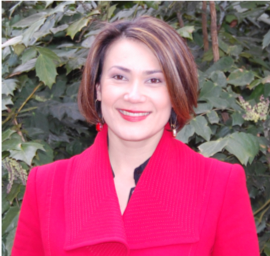
Dr. Ana Ferreras is a consultant, evaluator, speaker, professional developer, researcher, fundraising expert, and advisor for organizational leaders in the private sector, academia, and the federal government. She is the leading author of “Company Success in Manufacturing Organizations: A Holistic Systems Approach.” Dr. Ferreras is one of the few industrial engineers in the U.S. working on science policy and science diplomacy. She is also a Senior Program Officer at the National Academy of Sciences (NAS), where she manages the U.S. National Committees for mathematics instruction, crystallography, physics, theoretical and applied mechanics, and radio science. Dr. Ferreras earned a PhD in Industrial Engineering (IE) at the University of Central Florida (UCF). Her doctoral research focused on developing a company success index model to assess and predict organizational performance based on critical success factors such as profit, productivity, efficiency, quality, employee morale, safety and ergonomics. She also holds an MS in Engineering Management from the Florida Institute of Technology and a BS in Electrical Engineering from UCF. During her doctoral research, she assisted the IE Department at UCF in reengineering the undergraduate curriculum by developing a national model, new programs, experiential laboratories, and research centers. Prior to joining the NAS, she was a winter 2008 Christine Mirzayan Policy Graduate Fellow with the Center for Advancement of Scholarship on Engineering Education at the National Academy of Engineering.
https://www.nysacademy.org/nationalacademies.org/
Email: aferreras@hotmail.com
Richard-Duane Chambers
Special Assistant for the Electronics Resurgence Initiative (ERI),
Defense Advanced Research Projects Agency (DARPA)

Richard-Duane serves DARPA as a Special Assistant to the Director, assigned to the five-year $1.5 billion Electronics Resurgence Initiative (ERI), and coordinates across its 20+ programs. Prior to joining the Government, Mr. Chambers was a Lead Associate at Booz Allen Hamilton, assigned to DARPA’s Microsystems Technology Office (MTO). He has been a Professional Staff Member for the Senate Commerce Committee, with a focus on innovation policy, and a Mirzayan Fellow at the National Academies. He holds a B.S. in Aeronautics and Astronautics and an M.S. in Technology and Policy, both from the Massachusetts Institute of Technology.
https://www.nysacademy.org/darpa.mil/
Meredith Drosback
Associate Director, Science
SciLine
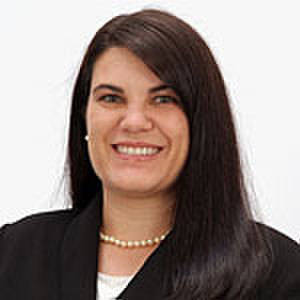
Dr. Meredith Drosabck is a Senior Associate Director for Science at SciLine, a program at the American Association for the Advancement of Science. SciLine’s mission is to connect journalists working on stories about science, environment, and health with the scientific information and expertise they need for their stories; Meredith leads the organization’s outreach and engagement with the scientific community. Prior to SciLine, Meredith served for five years at the White House Office of Science and Technology Policy where she worked to expand opportunities and improve learning outcomes in science, technology, engineering, and mathematics (STEM) education and to support and strengthen the research and development enterprise in space science, materials science, and forensic science. Meredith also served as a congressional fellow with the U.S. Senate Commerce, Science, and Transportation Committee, covering science and space policy legislative issues.
Before her arrival in Washington, D.C., Meredith was a postdoctoral research associate studying star formation at the University of Virginia. She received her Ph.D. in astrophysics from the University of Colorado, her M.S. in physics from North Carolina State University, and a B.S. in chemistry from Duke University.
https://www.nysacademy.org/sciline.org/
AAAS Panel Discussion
Thursday June 18, 2020 8PM EDT
Panel Discussion abstract TBA
